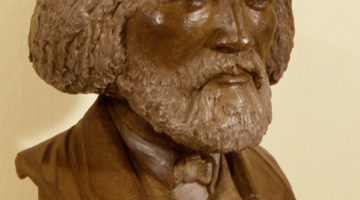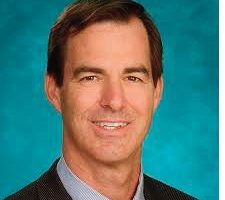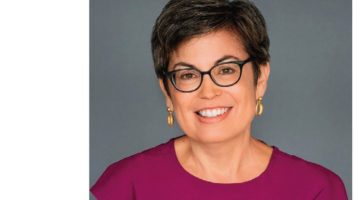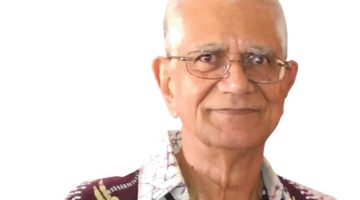If charity begins at home, as English author Thomas Browne wrote nearly 500 years ago, how come the United States spends tens of billions of dollars to help peoples in other countries while millions of Americans struggle to make ends meet?
That question is probably in the minds of those who approve of the ongoing efforts to dismantle the United States Agency for International Development (USAID). It is a fair question and there is an answer. One purpose of foreign aid is, of course, to help the needy in other countries deal with health and economic issues. But it also advances United States national interest, not unlike the more than $800 billion or 13 percent of the federal budget spent on the military every year to safeguard the homeland. Foreign aid, however, costs roughly $40 billion or less than 1 percent of the budget annually.
Yet, USAD was among the earliest targets of newly re-elected President Donald Trump’s hunt for federal agencies to be shuttered, employees laid off and their funding ended. That supposed search for waste in the bureaucracy is being led by Elon Musk, whom the president picked to head a new Department of Government Efficiency (DOGE). Musk quickly called USAID a “criminal organization” and said it was “Time for it to die” in a “wood chipper.”
Secretary of State Marco Rubio claimed that USAID has been “deciding they’re somehow a global charity separate from the national interest or taxpayer dollars,” according to The New York Times. Following the president’s anti-USAID order, Rubio announced a complete shutdown of the agency for an assessment lasting at least three months. Trump himself declared on his social media platform, “CLOSE IT DOWN,” even before the review had started. That is because these days facts are often irrelevant to decisionmaking. USAID is vulnerable merely because it deals with foreign countries, which contradicts the current “America First” ideology.
But, as Smantha Power, a former USAID administrator, wrote in a Times commentary, USAID “has generated vast stores of political capital in more than 100 countries where it works, making it more likely that when the United Sates makes hard requests of their leaders – for example, to send peacekeepers to a war zone or to help a U.S. company enter a new market or to extradite a criminal to the United States – they say yes.”
Of the $38 billion which USAID spent in 2023, Power wrote, “nearly $20 billion was for health programs (such as those that combat malaria, tuberculosis, HIV/AIDS and infectious disease outbreaks) and humanitarian assistance to respond to emergencies and help stabilize war-torn regions. Other USAID investments are less visible but pay dividends in the longer term, such as giving girls a chance to get an education and enter the work force or growing local economies.”
Power added, “Many of the agency’s most significant investments – like helping communities rebuild after [the Islamic State] has been defeated or improving poor countries’ ability to suppress deadly infectious disease outbreaks – are immensely important for national security.”
President John F. Kennedy established USAID 61 years ago by executive order as an independent organization to, according to The Times, “deliver health services, disaster relief and antipoverty efforts.” Congress enacted legislation 34 years later designating USAID an “independent establishment” like others in the Cabinet. It has traditionally had bipartisan support in Congress.
Over the years, the agency’s work has expanded considerably, as has its funding, so there could be areas where costcutting may be warranted. It would have been reasonable if the president had ordered a review of USAID but allowed it to operate pending the findings, as Rubio indicated. His executive order halting all activities, including reducing the workforce – from more than 100,000 to about 600 – and an abrupt ending to funding, have had immediate consequences, Power and others have noted.
Rubio, whose State Department will absorb USAID, apparently woke up to the serious problems which are being caused. He issued a waiver allowing the agency to continue funding “core life-saving medicine, medical services, food, shelter and subsistence assistance,” according to the Center for Economic Policy Research. Rubio, surprisingly, also contradicted both the president and Musk by saying, “This is not about ending USAID.” Rather, it is “to ensure that everything they do has to be in alignment with the national interest and the foreign policy of the United States.” He did not explain how his waiver will be acted upon as the agency is being shut down.
Also, some observers have pointed out the incongruous situation of Musk being in charge. Times columnist Nicholas Kristof noted that Musk “probably has a net worth greater than that of the poorest billion people on Earth” and that since Trump’s election three months ago Musk’s net worth “has grown by far more than the entire annual budget of the USAID.”
Gregg Sargent, writing in The New Republic, said that the president was “empowering the richest human being on the planet to maliciously and gratuitously heap additional misery on the planet’s most poor, hungry and desperate people.”
And ProPublica reported that SpaceX, one of Musk’s several companies, has received at least $15.4 billion in contracts over the past 10 years from “the same government he has pledged to cleanse of wasteful spending.”
There is also a domestic angle. “Contractors, farmers and suppliers in the U.S. and around the world say the Trump administration’s funding freeze has stiffed them on hundreds of millions of dollars in pay for work already done, has forced them to lay off staff and is rapidly putting many near the point of financial collapse,” the Associated Press reported. “Farmers and other suppliers and contractors describe fortunes in undelivered food aid rotting in ports and other undelivered aid at risk of theft.” Politico reported that farmers are fearful that scrapping USAID will affect the $2 billion in U.S. farm commodities which the agency buys annually for humanitarian aid.
It seems inevitable that the U.S. Supreme Court will have to decide whether Trump has the constitutional authority to shutter USAID – and other federal agencies. The court has previously ruled that presidents are immunity from criminal prosecution in the conduct of official business. However, many of the orders which Trump signed ignore Congressional requirements and the Justices will have to resolve the obvious power grab.
Meanwhile, at least two judges have issued temporary restraining orders blocking implementation of the action against USAID. One came following a lawsuit filed by the Aids Vaccine Advocacy Coalition and the Global Health Council which represents health organizations receiving U.S. funds for work abroad. Several aid organizations which have said they have already been “devastated” by what has already happened also sued the administration.
As all of this is being played out, those who may be expecting that any funds coming from shuttering USAID will be used to shore up the social safety net are likely to be disappointed. Such spending is also slated for deep cuts, especially Medicaid, a proposition which has outraged even rightwing activist Steve Bannon, a stalwart Trump supporter.
House Speaker Mike Johnson is trying to find at least $880 billion worth of spending cuts as part of a target of at least $2 trillion being discussed for the new budget and social safety-net programs “would bear the brunt,” Fortune reported. “The Agriculture Committee, which oversees food aid programs, would cut $230 million and the Education Committee would slash spending by some $330 million.”
But, Bannon cautioned on his podcast, “Medicaid, you gotta be careful. Because a lot of MAGAs are on Medicaid, I’m telling you. If you don’t think so, you are dead wrong.” Of course, they will not be the only ones affected. More than 79 million people are enrolled in Medicaid and the Children’s Health Insurance Programs (CHIP), according to Medicaid.gov.
And it is very likely that any “savings” will go towards fulfilling Trump’s promise of tax cuts and, as happened in his first administration, the very wealthy will the biggest beneficiaries.













No Comment